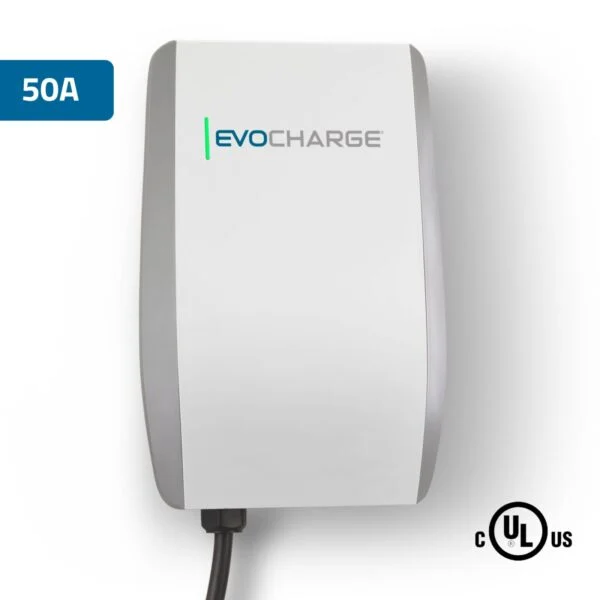Like standard Level 2 electric vehicle (EV) chargers, smart chargers supply electrical power which is used to power up EVs and plug-in hybrid electric vehicles (PHEVs). Where the two charger types differ is in functionality, as traditional chargers typically do not connect to Wi-Fi and are not as feature-rich.
Understanding the basic capabilities of different EV charger types will help identify the right charging solution for your home, providing you with convenience and access to the charging attributes you want. Follow this simple guide to learn more about what a smart EV charger is, how you might be best-served using one, and how you can start the installation process.
How Do Smart EV Chargers Work?
Compared to standard electric vehicle supply equipment (EVSE) chargers, Level 2 EV chargers are equipped with smart technology that offers homeowners convenience and more functionality to gain greater control over their EV charging experiences. Essentially, smart chargers allow for access to a host of features making it so you charge your EV when you want, from where you want. Otherwise, smart chargers work similarly to other Level 2 systems, charging EVs up to 8x faster than Level 1 chargers, which come standard with most new EV purchases.
Why Do I Need a Smart EV Charger?
Optimizing energy consumption to save money is the primary reason to get a smart EV charger. The added convenience is another great perk, since smart chargers can be remotely operated through an app or web portal, and charging can be scheduled for a time that works for you. While it’s not critical to purchase a smart charger, the added features make it easier for you to save money over time. Knowing that, why wouldn’t you pay a little more upfront to save a lot over an extended period?
Can I Install an EV Charger at Home Myself?
In some instances, you can install a smart charger at home. But depending on your home setup, it’s often best to hire a certified electrician to install your new charger. Regardless of who installs your charger, you will need to power your system from a 240v dedicated circuit, which could be through an outlet or hardwire — so keep that in mind when determining where you want your charging setup in your garage or elsewhere on your property.
Do EV Home Chargers Need Wi-Fi?
Yes, smart EV chargers need to be connected to Wi-Fi to unlock their full benefits. Many smart chargers can also be used as simple plug-and-use systems, but you won’t have access to any of their robust features without connecting them to a network.
EvoCharge’s Home 50 charger can be controlled with the EvoCharge App or by accessing the web portal. An easy-to-use Level 2 charger intended for home use, the iEVSE Home connects to a 2.4Ghz Wi-Fi network, and includes technology that allows you to schedule charging times, which allows you to save money by charging your EV during off-peak hours.
The web portal is also a great addition to EvoCharge’s smart home charger, granting access to a dashboard that provides users with high-level viewing of charging session and usage data. The web portal offers all the same convenient features as the EvoCharge app, but it also gives the ability to download charging session data via CSV files, and you get access to a sustainability webpage that gives insights into your charging and its impact on the environment.
How Much Does a Smart Charger Cost?
Since smart chargers include more technology and features than basic chargers, this means they also cost more. Level 2 smart chargers generally start around $700 and go up to $1,000 in price for the hardware, plus any accessories you may want to add to your setup. EvoCharge’s Home 50 charger starts at $599 and can be purchased through installments. Overall, smart chargers typically cost a couple hundred dollars more than alternative systems, however they give users the ability to save a lot of money over time since they offer so much control over the charging experience.
Enjoy convenient and efficient smart charging from anywhere
If you get the EvoCharge iEVSE Home and want installation help, we recommend using a certified electrician. If you have questions about the iEVSE Home or other charging equipment, contact us or view our FAQs.

